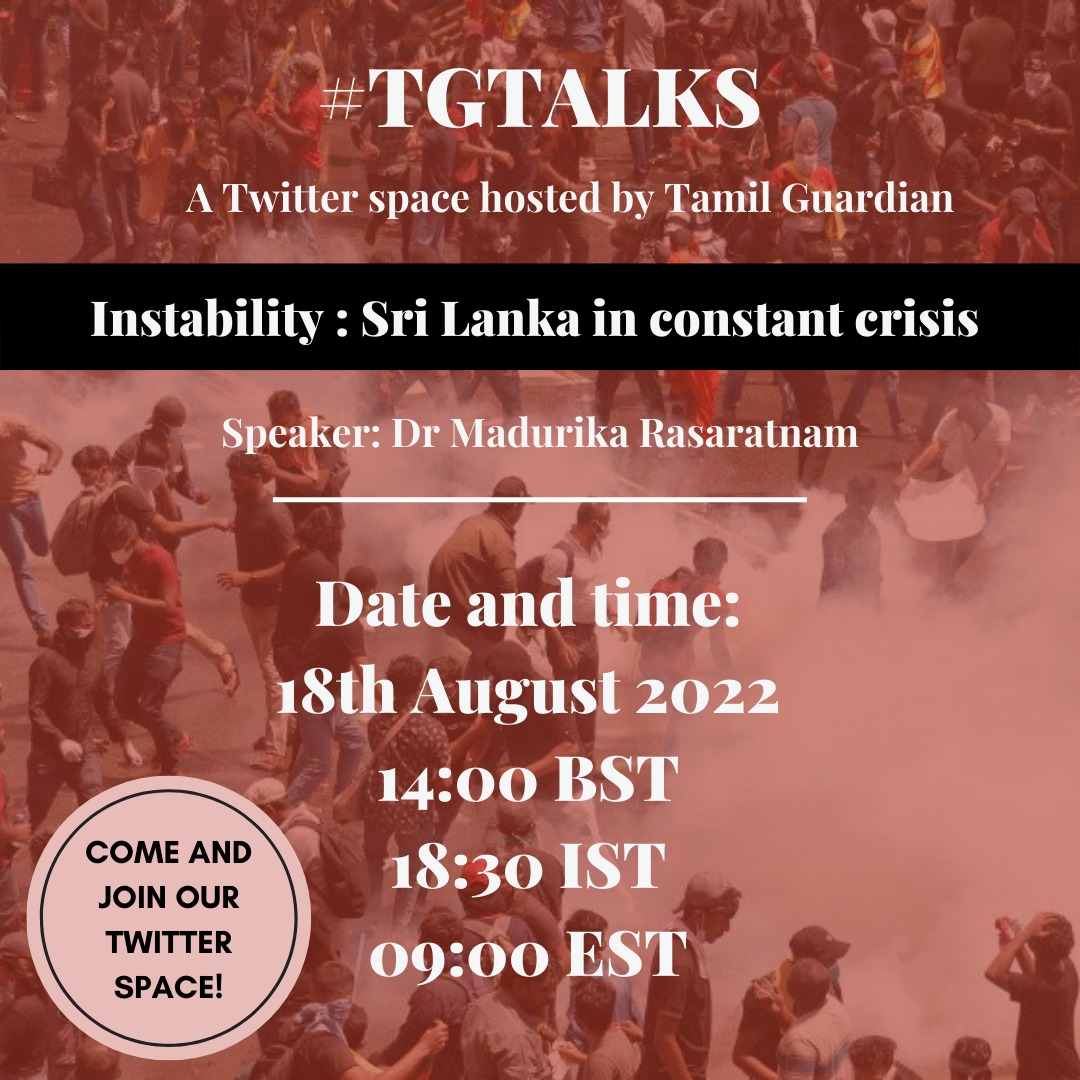
Tamil Guardian hosted a Twitter space joined by Dr. Madurika Rasaratnam where the causes of the current economic and political crisis in Sri Lanka were discussed.
Dr. Madurika Rasaratnam is a lecturer in Comparative Politics at City, University of London. Her research is concerned with the comparative and international politics of ethnic and nationalist conflicts, conflict management and peacebuilding with a regional focus on the countries of south Asia. Dr. Rasaratnam is the author of ‘Tamils and the Nation: India and Sri Lanka Compared’ which was published in 2016.
Dr. Rasaratnam began by looking into the proximate causes of the current economic crisis and the root cause being a "crisis of Sinhala Buddhist Nationalism". Dr Rasaratnam then explained the political shifts which led to the rise of the Rajapaksa regime and how the ethnocratic nature of the state increased debt burdens on the country. She then spoke on the latest avatars of the "mantle of Sinhala Buddhist nationalism" [Rakapaksa's] and how they introduced a new economic and political model which became heavily reliant on borrowing to finance development for the Sinhala-Buddhist nation and to reassert Sinhala-Buddhist political supremacy on the island. Dr. Rasaratnam explained how the crisis was to be expected as the country was heading towards default before the Pandemic as the country was not generating enough revenue to meet its debt repayments and was already "illiquid by 2018".
Speaking on the rampant militarisation of the state which accompanied the rise of debt on the Island, Dr Rasaratnam noted that the Sri Lankan military per capita is one of the largest in the world. Sri Lanka currently has a higher Military per capita than India, Pakistan and the United Kingdom. The military has predominately been saturated the North-East and is encroaching on sectors of the economy in the south. Dr Rasaratnam noted how the military is used to fund "acts of Sinhala -Buddhist performance", through land grabbing, and the building of Buddhist temples which all have no economic basis. Dr Rasaratnam then went on to discuss the change in the international outlook on Sri Lanka and what core demands around accountability, demilitarisation and justice are needed to be made to ensure concrete on-the-ground changes.
Listen to the full space here
— Tamil Guardian (@TamilGuardian) August 18, 2022
